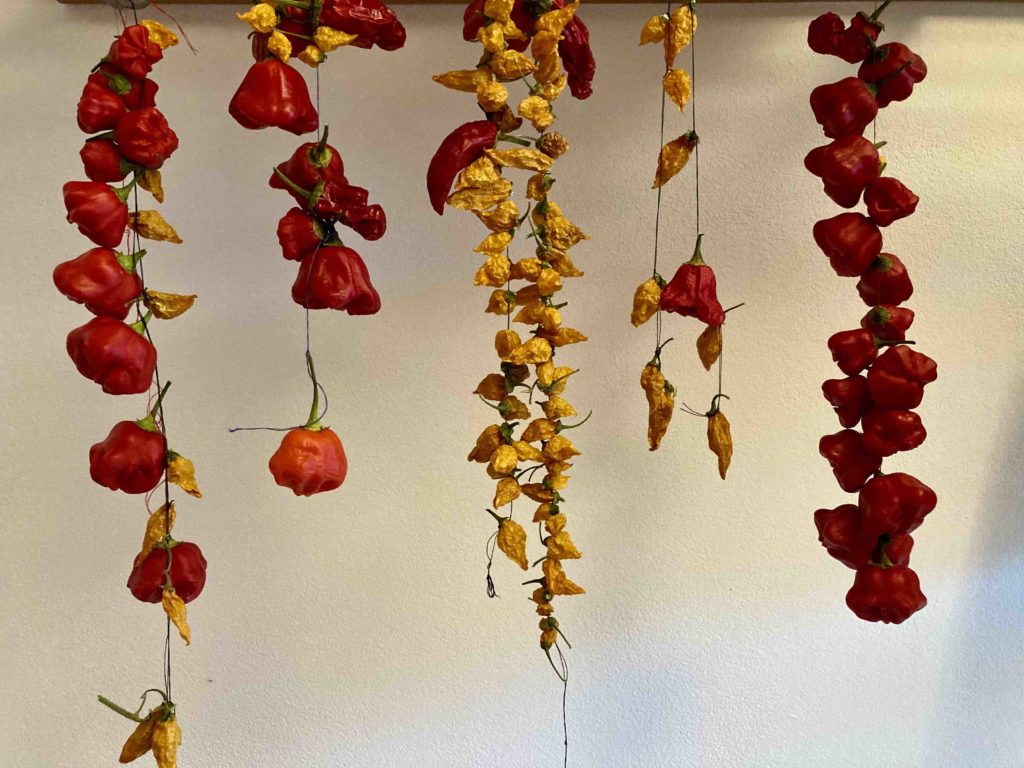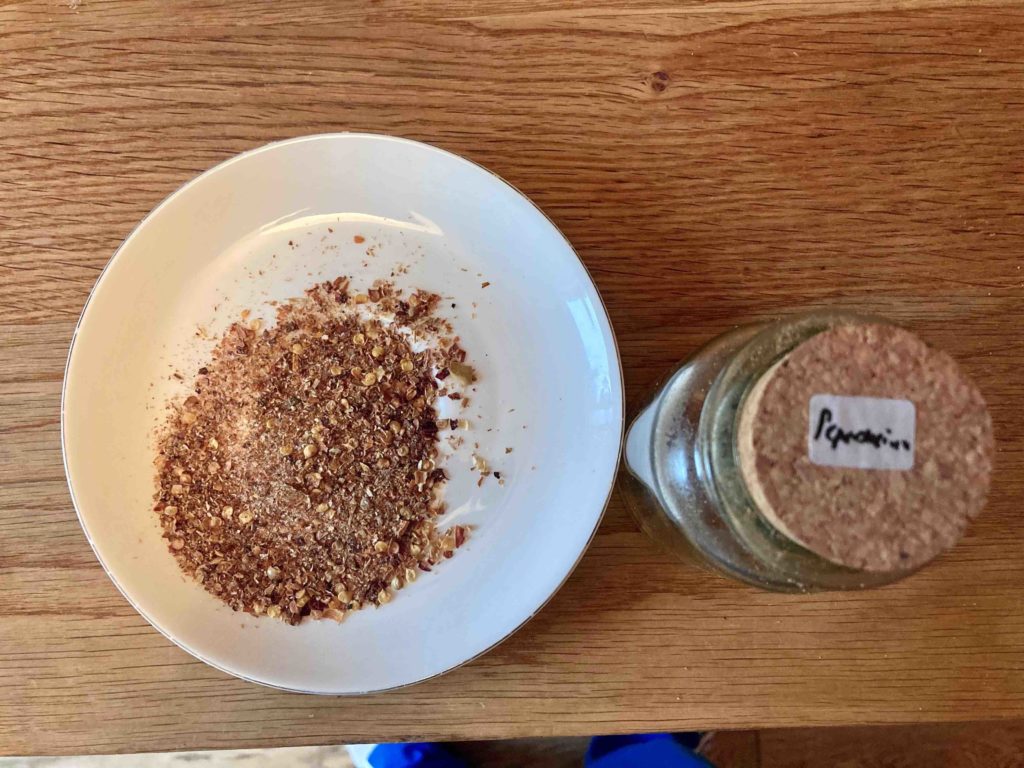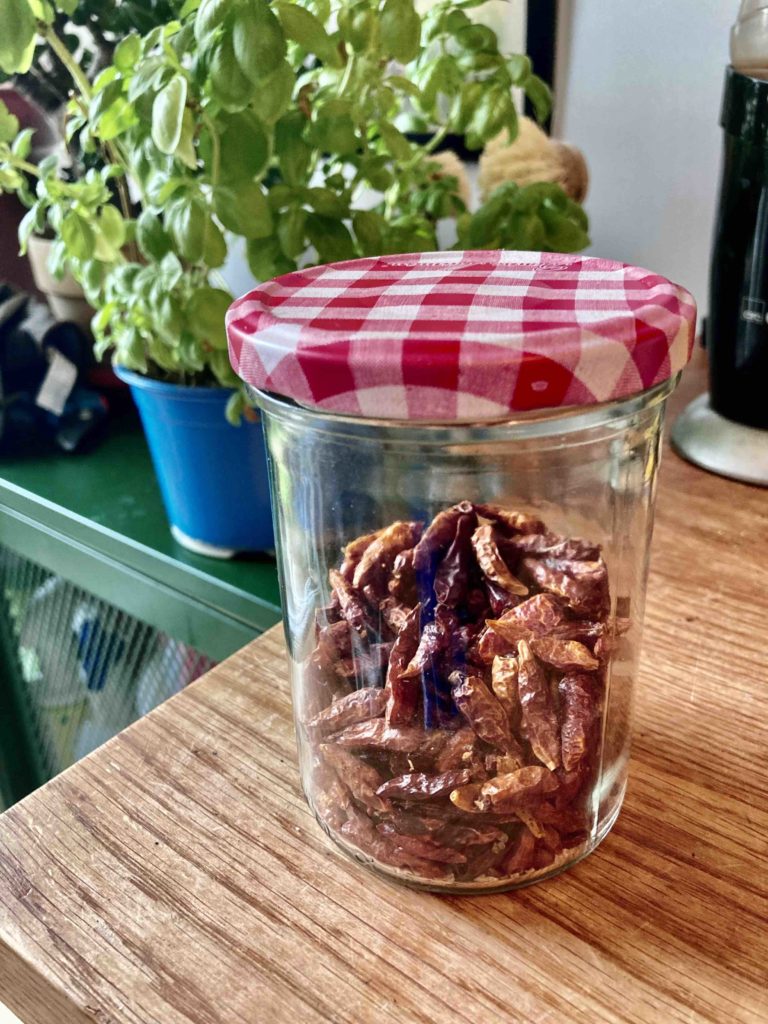Why so many Germans Dislike Spicy Food
Having some Germans for dinner and feeding them properly spicy food is something of a cruel experiment. I grow hot peppers on my Berlin balcony and in the autumn string them up to dry, a pale version of what you see on balconies in Calabria, Italy, where my mother’s family is from. I hardly notice when I put a few of these red firecrackers in an arrabbiata sauce. But when I see my German guests–– runny-nosed, turning crimson, and reaching for their wine or water––trying to look composed as they implode, I realise I’ve not been a very good host. There’s not just dislike in their expressions but also panic. Meanwhile, I’m running to the kitchen to pour them a glass of milk.

Cooking for such Germans at home is one thing, but you might ask how they handle eating out, trying cuisines that are traditionally spicy. For example, the menu in a Thai restaurant in Kreuzberg indicates with hot pepper icons how spicy the various main dishes are. My German friends are sincerely worried about me because I’ve ordered the Gaeng Pah––a red curry beef dish with krachai and basil. They are concerned not only because of the four-pepper icon warning––sehr scharf––but also because I’ve asked the kitchen to make it Thai scharf, or ‘Thai hot’, a necessary request if you don’t want your food to be bland.
The Germans ask, ‘Can you eat spicy?’, a common question. The kitchen staff only believe me because I’ve been here before. The first time, they watched me carefully, worried I’d send the food back––something I’ve also seen many times. ‘It’s too scharf. Das kann man nicht essen!’ It can’t be eaten.
For those who grew up on very spicy food, the overcaution of say Mexican, Szechuan, Andrah-Indian, or Malaysian restaurants means a series of disappointing culinary encounters in the German capital. Dishes that should be spicy are not. Dishes marked spicy are not. Exhortations to make the dish spicier are met with disbelief. All this means that an intolerance to spice is vandalising the Berlin foodie scene.
Why do many Germans (not all obviously) apparently have such trouble with spicy food? There are nature and nurture arguments, with research favouring the latter. The heat in food comes from a chemical called capsaicin and it activates receptors in the mouth. The receptivity of these receptors differs between people. While there is debate about whether there are genetic reasons for these differences (some people who can’t process capsaicin might experience it as a toxin and suffer gastrointestinal problems), there is reason to believe that people can train a tolerance to spicy food. At the University of Massachusetts, Amherst, researchers made people who don’t like spicy food use a capsaicin mouthwash morning and night. After three weeks, tolerance to spice had skyrocketed.
I want DM to stock that mouthwash because German cuisine is not helping. I’ve heard many reasons for its blandness: that there was no need in northern climates to cure food with hot spices because the cold temperatures already favoured hygiene. Studies have shown that spicy foods have antimicrobial properties. Some scientists argue for ‘Darwinian gastronomy’––those from Southern, hotter, climates have evolved a greater need for spice, and this ‘records our coevolutionary races against foodborne diseases’. But there is also the question of the availability of hot spice: in continental Germany, which lost its overseas colonies in World War One, these spices were expensive. German food favours sour or bitter or sweet––a palette of pickled cabbage, butter, and brown sauce.
As Berlin internationalises, so do tastes. There is hope for a dinner out that does justice to many world cuisines. I was recently at a new Malaysian restaurant, Ma-Makan, and tried their Laksa curry, and it made no compromise on spice. The restaurant was packed, which I took as a sign that people weren’t dialling an ambulance. All this raises my hopes that Berlin is ready for a spice revolution. My dear German readers who don’t like it hot: I know it’s not a competition to see who can handle it hottest, but please build your stamina, for the sake of Berlin’s culinary ecosystem!
Until that happens, I continue to string and dry my own peppers at home.



